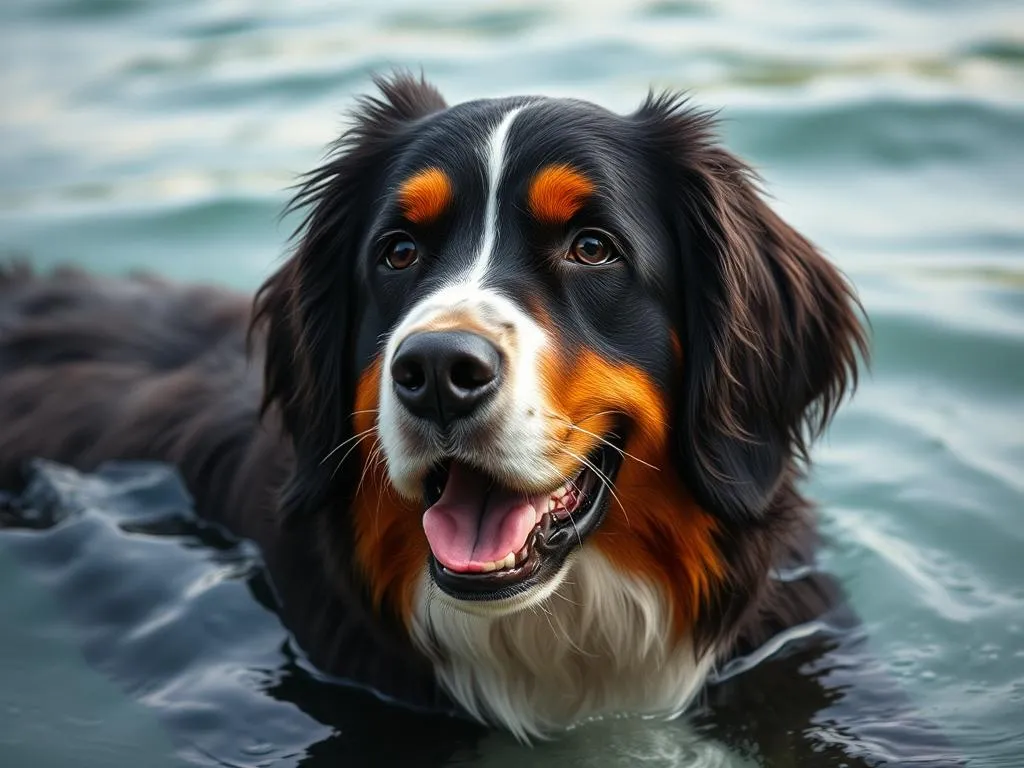
Introduction
Dog breeds play a significant role in the lives of pet owners, impacting everything from daily routines to emotional connections. Each breed has its unique characteristics and traits, making some better suited for certain lifestyles than others. Among the myriad of dog breeds, the Bernese Water Dog stands out for its unique combination of physical attributes, temperament, and historical significance. This article delves deep into the world of the Bernese Water Dog, exploring its origins, care requirements, and more to help prospective owners make informed decisions.
Understanding Dog Breeds
Definition of Dog Breeds
A dog breed is a specific group of domestic dogs that share common ancestry, characteristics, and traits. The classification of dog breeds can be based on various factors, including size, coat type, behavior, and purpose. Understanding breed characteristics is essential for potential dog owners, as it helps them choose a breed that aligns with their lifestyle and preferences.
Overview of Popular Dog Breeds
The canine world is rich with diverse breeds, each offering something unique. Popular breeds include Labrador Retrievers, German Shepherds, and Golden Retrievers, among others. When selecting a breed, it’s crucial to consider factors like energy level, grooming needs, and temperament to ensure a harmonious relationship between the dog and its owner.
The Bernese Water Dog: An Introduction
History and Origin
The Bernese Water Dog has a fascinating history rooted in Switzerland. This breed is believed to have descended from ancient working dogs, often used by farmers for herding and guarding livestock. The breed’s name reflects its origins near the Bernese Oberland region, where it thrived in both land and water activities, making it an essential asset for many families. Over time, the Bernese Water Dog has evolved, retaining its strong work ethic and adaptability to various environments.
Physical Characteristics
The Bernese Water Dog is a medium to large breed, typically weighing between 70 to 110 pounds. Males are generally larger than females, standing about 23 to 28 inches tall at the shoulder. Their coat is water-repellent, thick, and curly, often exhibiting a beautiful mix of black, white, and brown colors. These dogs are known for their distinctive features, including a broad head, expressive eyes, and a strong, muscular build, all of which contribute to their striking appearance.
Temperament and Behavior
Known for their friendly and affectionate nature, Bernese Water Dogs are excellent family companions. They are generally good with children and tend to get along well with other pets, making them versatile family dogs. Their social behavior is often characterized by loyalty and a protective instinct, which means they may be wary of strangers but are typically loving with their families. Common behavioral traits include a playful demeanor and a strong desire to please, which makes them relatively easy to train.
Health and Care
Common Health Issues
Like all breeds, the Bernese Water Dog is predisposed to certain health issues. Common concerns include hip dysplasia, elbow dysplasia, and certain genetic disorders such as cataracts. Regular veterinary check-ups and screenings can help catch these issues early. Responsible breeding practices also play a crucial role in minimizing genetic health problems.
Grooming Needs
The grooming needs of a Bernese Water Dog are moderate to high due to their thick, curly coat. Regular brushing, ideally two to three times a week, is necessary to prevent matting and reduce shedding. Bathing should be done as needed, typically every few months or when the dog becomes particularly dirty. Additionally, regular nail trimming and dental care are essential to maintain overall health.
Diet and Nutrition
Feeding a Bernese Water Dog a balanced and nutritious diet is vital for its overall health. High-quality commercial dog food formulated for large breeds is recommended. It’s important to monitor portion sizes to prevent obesity, a common issue in larger breeds. Consulting with a veterinarian can provide guidance on the best diet tailored to an individual dog’s needs.
Exercise Requirements
Bernese Water Dogs are active and energetic, requiring at least 60 minutes of exercise daily. Activities can include long walks, playtime in the yard, and swimming, which they often enjoy due to their water-repellent coats. Mental stimulation is equally important, so incorporating games and training sessions can help keep them engaged and happy.
Training the Bernese Water Dog
Basic Training Techniques
Training a Bernese Water Dog can be rewarding due to their eagerness to please. Positive reinforcement techniques, such as treats and praise, work best with this breed. Early socialization is crucial, as it helps them become well-adjusted adults. Basic obedience training should begin as soon as you bring your puppy home, focusing on commands like sit, stay, and come.
Advanced Training and Activities
For those interested in advanced training, the Bernese Water Dog can excel in agility and obedience competitions. Their intelligence and willingness to learn make them suitable for various activities, including swimming and hiking. Engaging in these activities not only provides physical exercise but also strengthens the bond between the dog and its owner.
Living with a Bernese Water Dog
Ideal Living Environment
The Bernese Water Dog thrives in an environment that offers plenty of space to roam and play. While they can adapt to apartment living, a house with a yard is ideal. These dogs enjoy being outdoors, so access to a secure outdoor area is essential for their happiness. Climate considerations are also important; they do best in moderate temperatures and should be kept cool during hot weather due to their thick coats.
Family Compatibility
One of the most appealing aspects of the Bernese Water Dog is its compatibility with families. They are particularly good with children, exhibiting gentle and playful behavior. Their social nature allows them to coexist peacefully with other pets, making them an excellent choice for multi-pet households. As a companion animal, they thrive on human interaction and are known to form strong bonds with their families.
Lifespan and Aging
The average lifespan of a Bernese Water Dog is around 8 to 12 years. As they age, they may require special considerations, such as joint supplements and modified exercise routines to accommodate their changing bodies. Regular veterinary visits become increasingly important to monitor health and address any age-related issues that may arise.
Finding a Bernese Water Dog
Responsible Breeders
Finding a reputable breeder is crucial when considering a Bernese Water Dog. Responsible breeders prioritize health testing and proper socialization for their puppies. Potential owners should ask breeders about health screenings, genetic testing, and the overall temperament of the parent dogs. Visiting the breeder’s facility can also provide insights into their breeding practices and the living conditions of the puppies.
Adoption and Rescue Options
Adoption is another viable option for those looking to bring a Bernese Water Dog into their lives. Several rescue organizations specialize in the breed, offering a chance to provide a loving home to a dog in need. Adopting can be a fulfilling experience, and many rescue organizations conduct thorough assessments to match dogs with suitable families.
Conclusion
The Bernese Water Dog is a remarkable breed that combines beauty, intelligence, and a loving temperament. With their rich history and unique characteristics, they can make excellent companions for the right families. However, it’s essential for potential owners to assess their lifestyle and needs before making a commitment. Responsible dog ownership is vital to ensure the well-being of these wonderful animals.
FAQs (Frequently Asked Questions)
What is the temperament of the Bernese Water Dog?
The Bernese Water Dog is known for its friendly, affectionate, and loyal temperament. They generally get along well with children and other pets.
How much exercise does a Bernese Water Dog need?
Bernese Water Dogs require at least 60 minutes of exercise daily, including walks, playtime, and mental stimulation activities.
What are common health issues for the Bernese Water Dog?
Common health issues include hip and elbow dysplasia, cataracts, and certain genetic disorders. Regular veterinary check-ups are important for early detection.
How often should I groom my Bernese Water Dog?
Grooming a Bernese Water Dog should be done two to three times a week to prevent matting and reduce shedding. Bathing should be done as needed.
Can Bernese Water Dogs live in an apartment?
While they can adapt to apartment living, Bernese Water Dogs do best in homes with yards where they have space to roam and play.









